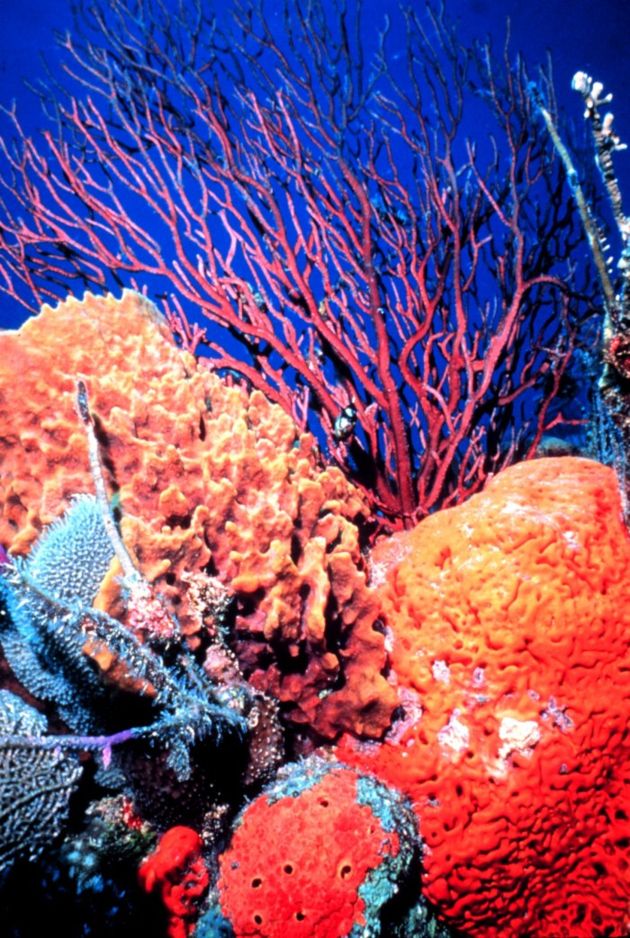Bad to Worse: Oil Spills Cleaned with Deadly Detergent

Get the world’s most fascinating discoveries delivered straight to your inbox.
You are now subscribed
Your newsletter sign-up was successful
Want to add more newsletters?

Delivered Daily
Daily Newsletter
Sign up for the latest discoveries, groundbreaking research and fascinating breakthroughs that impact you and the wider world direct to your inbox.

Once a week
Life's Little Mysteries
Feed your curiosity with an exclusive mystery every week, solved with science and delivered direct to your inbox before it's seen anywhere else.

Once a week
How It Works
Sign up to our free science & technology newsletter for your weekly fix of fascinating articles, quick quizzes, amazing images, and more

Delivered daily
Space.com Newsletter
Breaking space news, the latest updates on rocket launches, skywatching events and more!

Once a month
Watch This Space
Sign up to our monthly entertainment newsletter to keep up with all our coverage of the latest sci-fi and space movies, tv shows, games and books.

Once a week
Night Sky This Week
Discover this week's must-see night sky events, moon phases, and stunning astrophotos. Sign up for our skywatching newsletter and explore the universe with us!
Join the club
Get full access to premium articles, exclusive features and a growing list of member rewards.
Oops—the detergents often used to clean up oil spills appear more toxic to coral reefs than the oil itself, scientists now find.
In 2006, some 13,000 metric tons of oil were accidentally spilt from tankers and similar vessels, compared with the 37,000 metric tons spilt from the Exxon Valdez disaster in 1989. When spills happen near tropical coral reefs or shorelines, government authorities commonly use detergents to disperse the oil into smaller and supposedly less harmful droplets, much as soap helps break stains down.
To see what effects these detergents might have on corals, researchers exposed millimeters-sized clumps of two different Red Sea coral species to six commercial oil dispersants and six different concentrations of crude oil under lab conditions.
More toxic
The detergents and the dispersed oil droplets all proved significantly more toxic to the coral than the crude oil itself, causing rapid, widespread death or stunted growth rates, even at doses recommended by the dispersant manufacturers. The team's findings are detailed in Aug. 1 issue of the journal Environmental Science & Technology.
Oil can kill corals by directly enveloping and suffocating them. Toxins in the oil can also dissolve in water and poison corals. Although the detergents help break up oil slicks and prevent them from smothering coral, the increased surface area the smaller droplets present "means that more toxic components of the oil can come out," explained marine biologist Buki Rinkevich at the Israel Oceanographic and Limnological Research.
There are other considerations, however. Oil spills that are not dispersed can kill birds and other wildlife.
Get the world’s most fascinating discoveries delivered straight to your inbox.
Amy Merten, an environmental scientist at the U.S. National Oceanic and Atmospheric Administration (NOAA), said the study gives information on a worst-case scenario that should be considered in trade-off decisions. This includes choosing whether to disperse oil into the water and risk harming coral versus getting the oil slick off the surface of the water "so birds, mangroves, and nesting turtles aren't as affected," she said.
Few alternatives
Rinkevich and his colleagues recommended banning these detergents from anywhere near coral reefs and to only use them in emergencies, when oil slicks are shore-bound.
Still, "there are limited alternatives for responding to spills," Merten said.
"Essentially, there are mechanical methods [such as skimmers], in-situ burning or dispersants," Merten explained. "Generally, in open water, there is a very short window for using any method since the slick will spread and move with the wind and currents. Dispersants will continue to be considered as an option. After the oil spills, no one wins. Our job is to try to minimize further impacts, and there may be a time when dispersants help us do that for a portion of the spill."
- Image Gallery: Incredible Coral
- Hundreds of Oil-Covered Penguins Surface in South America
- What's Your Environmental Footprint?

 Live Science Plus
Live Science Plus










